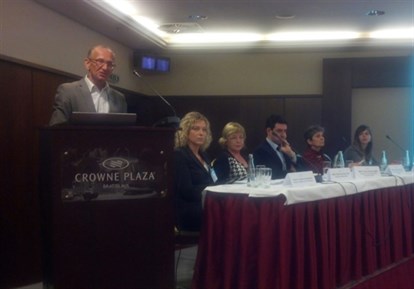Opioid access in Slovakia
More than 60 people attended the most recent ATOME meeting, held in Bratislava, Slovakia, last month to discuss access to opioids for both palliative care and harm reduction.
8 Apr 2014Barriers to access
Slovakian speakers, including physicians and government ministers, discussed access to opioids for both palliative care and harm reduction, and identified the main barriers to palliative care provision as:
- a lack of recognition of palliative care as a specialty and of basic network means that insurance have no duty to make contracts and there are no government-reimbursed services at outpatient clinics
- only pain specialists, but not palliative care or hospice physicians, can write reimbursable prescriptions for strong opioids
- patients in home-based palliative care services have to pay out of pocket if a palliative care, rather than pain physician prescribes
- prescriptions are valid for only five days, with a thirty-day dose limit
- oncologists might not cooperate with palliative care doctors needing to write prescriptions.
Speakers did not identify significant barriers to access to opioids for harm reduction, although some civil society represented cited the geographical constraints of program location and strict compliance issues.

Recommendations
The following recommendations were made during the conference for improving palliative care in the country.
- Education
- educate the public about opiophobia
- set up palliative care postgraduate and pre-graduate training in medical schools to train palliative care physicians
- raise status of palliative care by making it a specialty
- increase number of hospice beds around the country.
- Insurance
- reimburse prescriptions written by palliative care and hospice physicians
- support outpatient clinics and reimburse home based palliative care services.
- Prescription limits
- increase validity of prescriptions to seven days with a three month dose limit.
